Concrete Perspectives December 2017
Construction Sector
Towards A European Digital Construction Strategy
Thematic Group 1 “Stimulating investment in building renovation, infrastructure and innovation” held its meeting on 30 November, where Construction Products Europe (CPE) represented the construction materials industry. The meeting discussed the need for a European Digital platform for construction.
CPE aims to be part of the development of a common approach and drafting on a European digital construction strategy. The shared strategy should focus on problem-solving, enable sustainable solutions and deliver the desired business outcomes for the construction industry.
Recommendations of CPE:
- Collaborate through an open platform;
- Develop European standards;
- Involve the whole supply chain;
- Ensure no system ownership;
- Protect data ownership
Industry4Europe Plenary meeting
The Joint initiative of the industry sector for an ambitious and strong European Industrial Strategy, Industry4Europe held its plenary meeting on 4 December 2017.
After the publication of the Commission’s Communication on “Investing in a smart, innovative and sustainable Industry A renewed EU Industrial Policy Strategy”, several ad-hoc working groups were created and had been working on the Joint Reaction Paper.
This paper had been handed over to Trio of the Council (Estonia, Bulgaria and Austria) -who by the way, were all invited and have a speech at the meeting-, to the European Commission (President Juncker’s cabinet) and soon to Commissioner for Industry Elżbieta Bieńkowska, Vice-President Katainen and President of the European Parliament Antonio Tajani. A broad and active dissemination phase has started within the European Institutions.
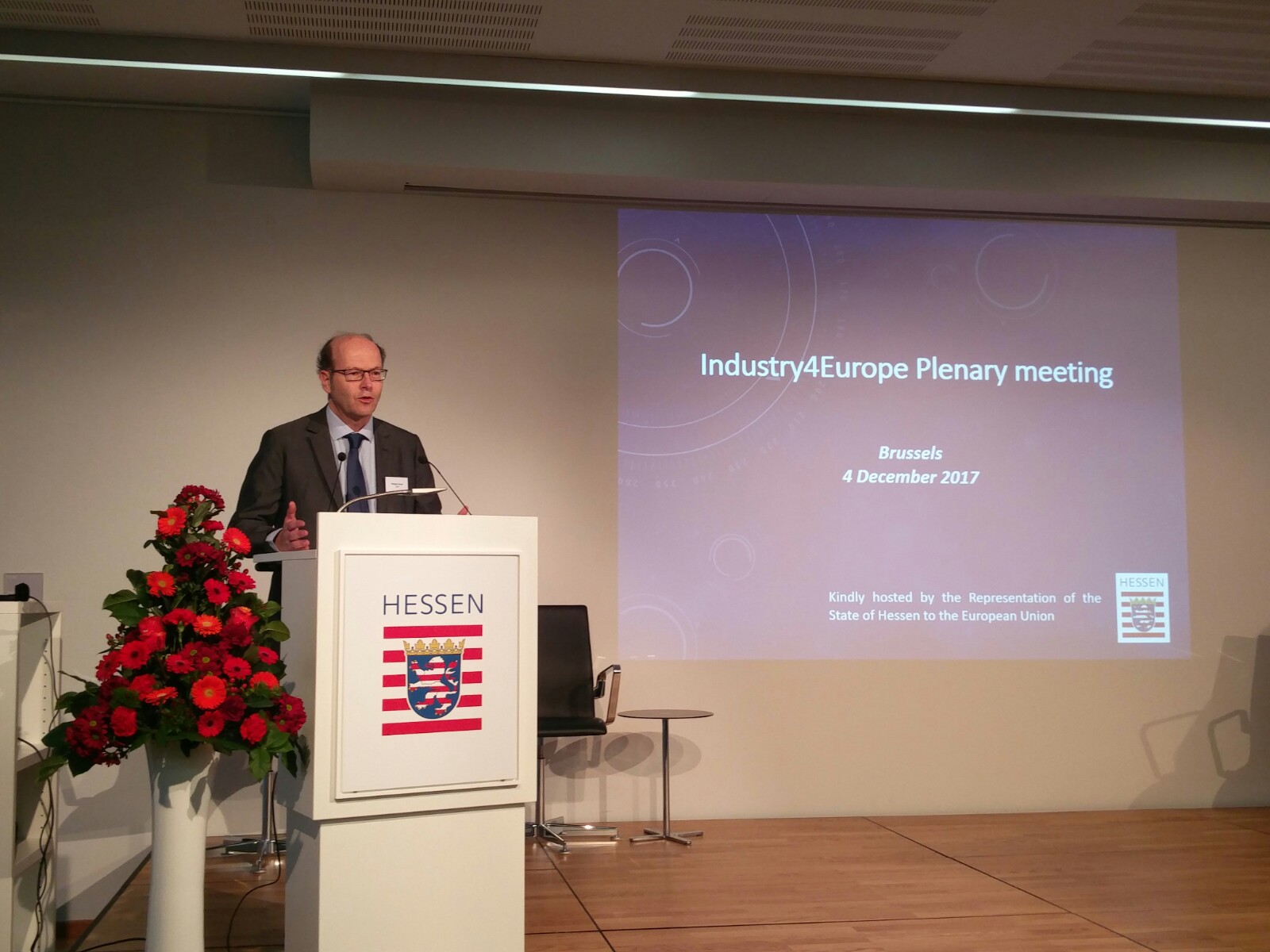
UNIFE Director General Philippe Citroën
Th European Committee of the Regions and the European Economic and Social Committee are both preparing an opinion on the Commission’s Communication, and representatives of the Industry4Europe were invited to the working group meetings.
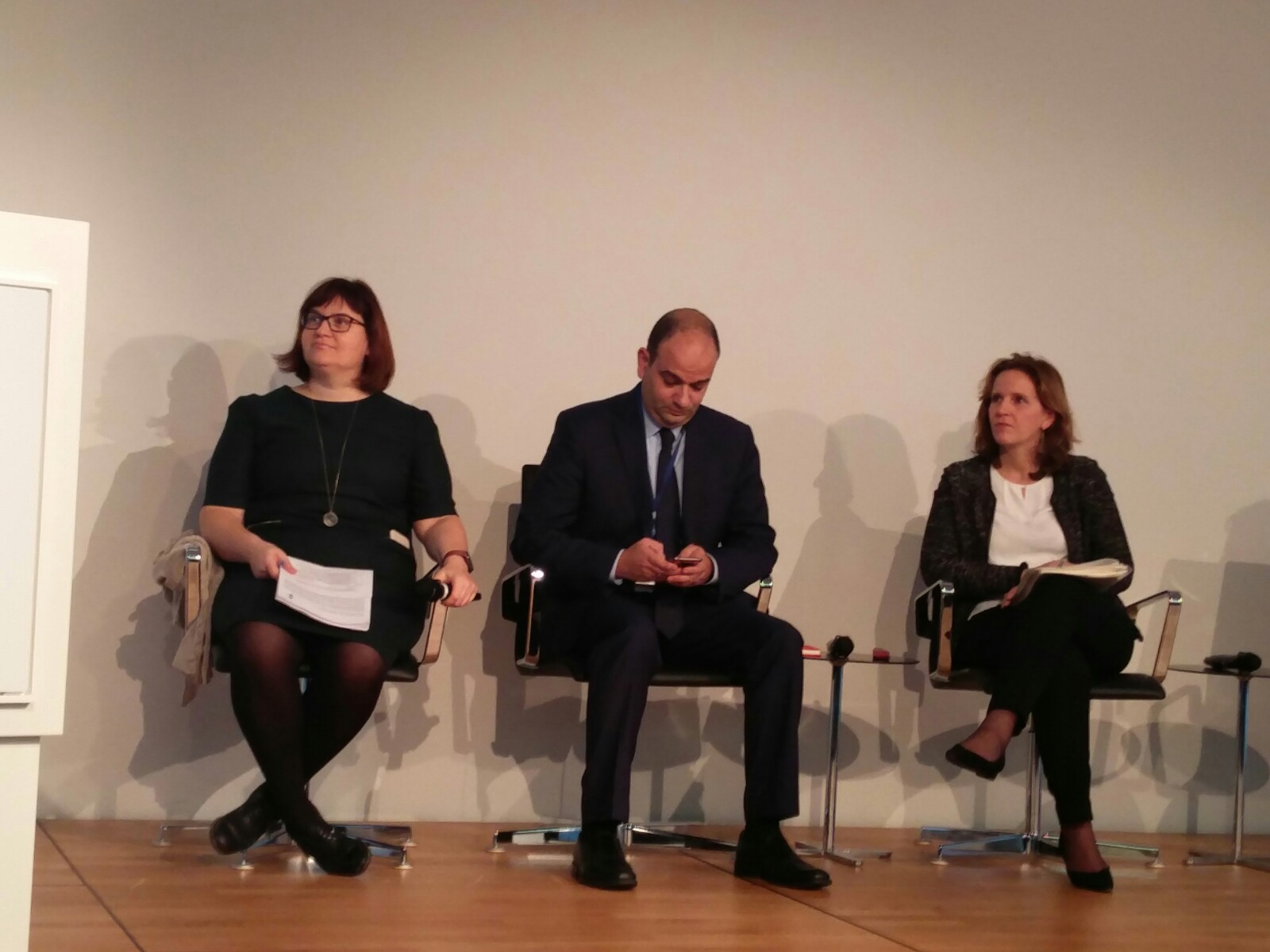 Trio Presidency representatives
Trio Presidency representatives
Moreover, they were invited to the Competition Council where they presented the joint reaction paper. Member States are very supportive and they all asked the Commission for a strong, long-term industrial policy and strategic objectives and indicators. However, the European Commission were not very keen on moving forward and thought that the September publication (non-binding) of the Communication on Industry had already offered the solution. In the Council Conclusions, the Member States asked a for a long-term industrial strategy by spring 2018.
The Estonian Presidency supported the coalition during the whole Presidency. The Bulgarian and Austrian representatives confirmed that they are ready work forward a strong industrial strategy and will develop indicators and targets.
The Trio Presidency declared that technology neutrality is a must in the negotiations and in the future strategy.
No legislative initiative is expected before May 2018.
European Committee of Regions (ECR) adapts opinion on European Agenda on Housing
ECR has adopted an opinion on European Agenda on Housing on 30 November 2017. The paper suggests that ideally the agenda should include:
- proper involvement of the European Parliament and consultations with local and regional authorities prior to adopting country-specific recommendations of the European Semester in the area of housing policy;
- a further way for investments in social infrastructure at local and regional levels within the Stability and Growth Pact;
- the inclusion of regional data on year-on-year changes in house prices as a trigger point in the macro-economic imbalances scoreboard so as to warrant close monitoring;
- a more effective use of the EU’s funding instruments in addressing the housing crisis and a housing investment which is eligible under the future cohesion policy in order to better respond to the diversity of local needs.
Housing Europe welcomed the paper.
Live from the European Union
Agreement reached on Energy Performance of Building Directives
After its adoption in early October in the European Union’s responsible Committee, interinstitutional discussion was opened, so called Trialogue negotiations (European Parliament, Commission and Council of the EU). The EU Commissioner in charge of climate action, Miguel Arias Cañete, personally attended three-way talks, which show the political importance of the directive.
Agreement was reached difficulty where Member States appeared to “lack of ambition and flexibility” while the Parliament and the Commission push for an ambitious directive.
However, on 19 December, the Estonian presidency reached a provisional agreement with the European Parliament on a revised directive on the energy performance of buildings.
The centre part of the deal is long-term renovating strategies, that will be required to put in place by all Member States. The aim of the directive to speed up renovations and decarbonise the building stock by 2050.
Furthermore, a mandate was agreed for the European Commission to establish a voluntary “Smart Readiness Indicator” assessing the capacity of buildings to adapt to the needs of its occupants – like automation systems for lighting or heating.
The revised EPBD also sets up voluntary energy performance databases where national governments can file data collected through energy performance certificates.
The outcome of the Trilogue was presented to EU ambassadors on 20 December, with the final analysis and approval of the agreement expected to take place at the beginning of next year.
Once formally adopted, the directive will be published in the Official Journal of the EU will follow, and the legislation will enter into force twenty days later. The transposition period for this legislation is 20 months.
National Award Project
Emiliedalen – Højbjerg, Denmark
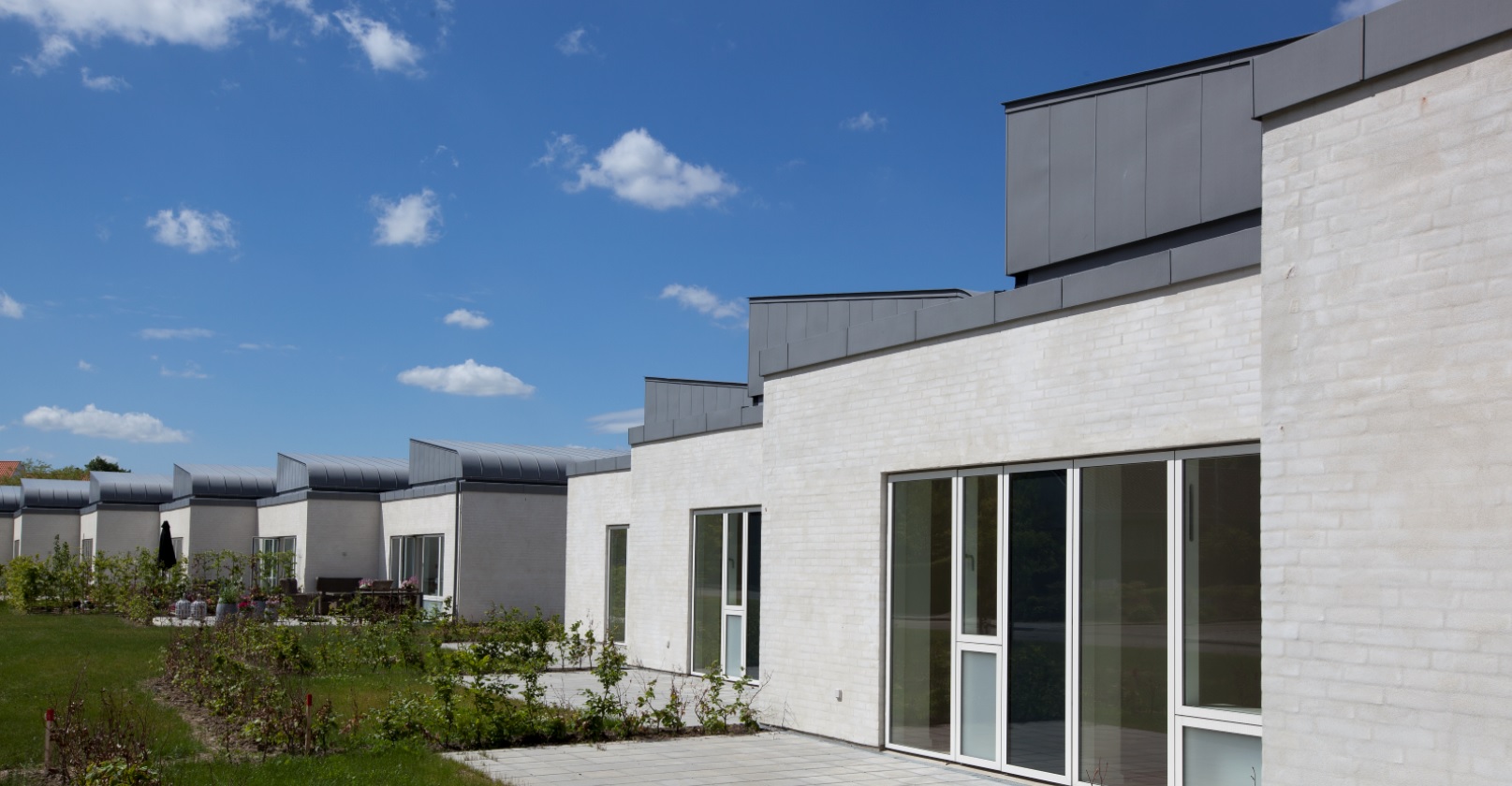
The 104 apartments and 53 terraced houses are nicely organized in rods of varying length to ensure an openness in the landscape. In the surroundings there is a lake, a small forest and it is close to beach, therefore architects wanted to safeguard that these distinctive characterises are reflected in the design.
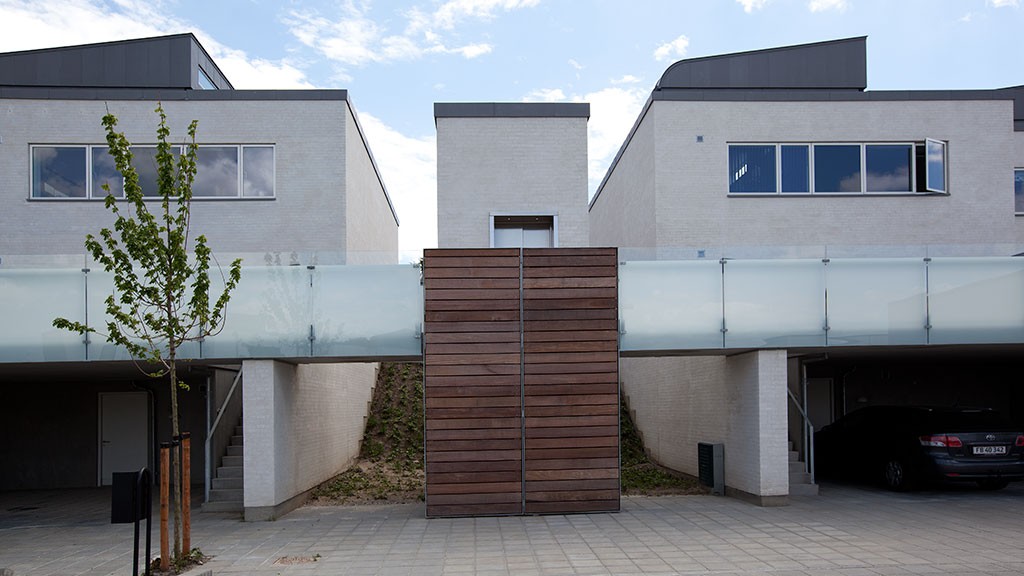
Winding roads lead directly to the homes where you can park outside the home. The townhouses are built with small displacements that provide a dynamic for the entire range of homes.
The Emiliedalen is a successful example of simple architecture with small variations that provide a beautiful whole. All houses have brick facades with painted plaster and many of the top apartments have an extra ceiling height with side lights.
The fine curved shape gives a special identity to the houses and the entire settlement, especially the series of houses built into the slope.
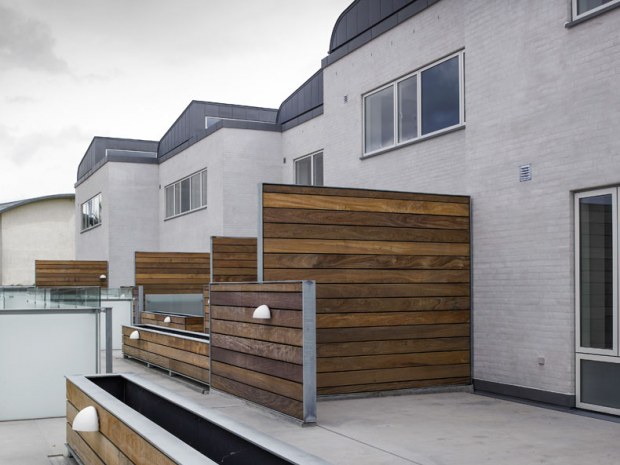
Client: Finanssektorens Pensionskasse, Teacher Pension
Client Advisor: Rambøll Danmark A / S
Architect: Arkitema Architects K / S
Contractor: KPC Herning A / S
Engineer: Engineer A / S
Other actors: Bad Element ApS, Woodfloor AS, Bo-Glas A / S
Area: 16000 sqm.
Construction period:
December 2011 – July 2012
News in brief
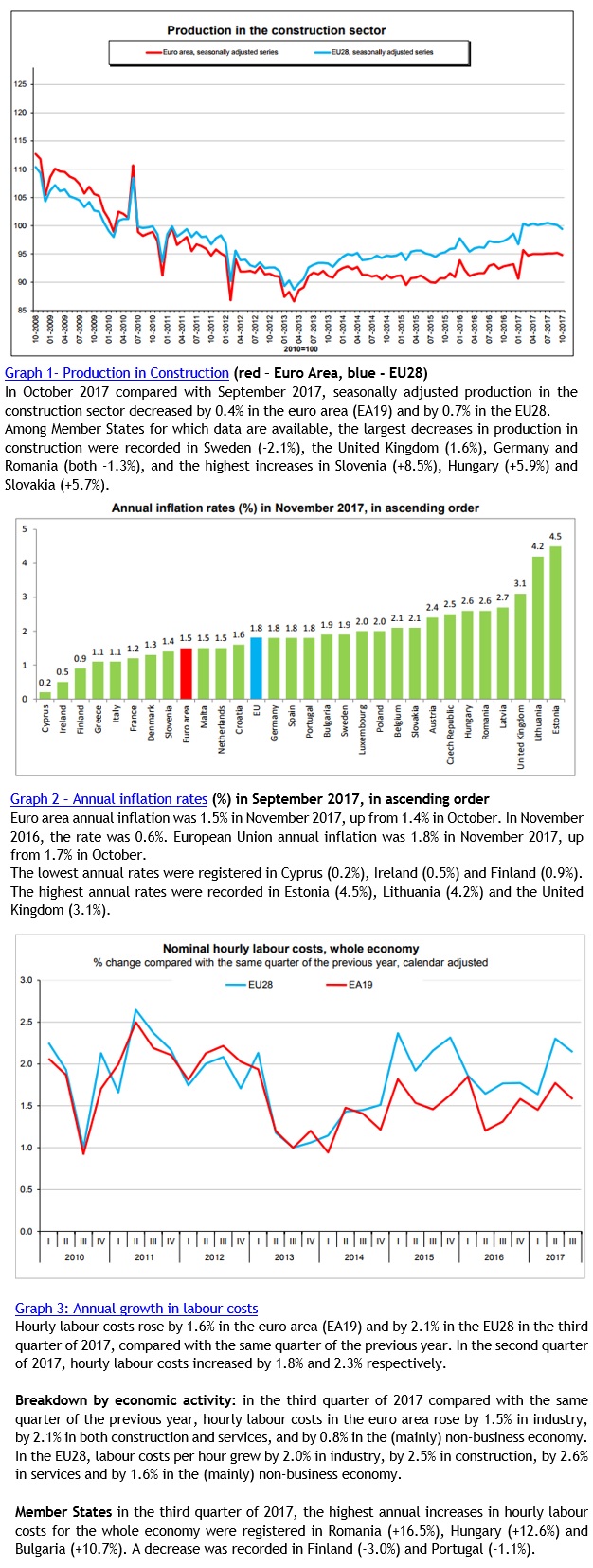
Agenda
JANUARY
10 January
BIBM Technical Commission
Brussels, Belgium
11-12 January
ECO-Binder General Assembly
Madrid, Spain
15 January
Concrete Initiative ad-hoc group
Brussels, Belgium
23 January
EMA meeting
Brussels, Belgium
23 January
Workshop “Decarbonising the cementitious materials sector”
Brussels, Belgium
25 January
TF Eurocode 2
Confcall
29 January (provisional)
PEF for Buildings workshop
Brussels, Belgium
FEBRUARY
7-8 February 2018
CEN/TC 104/SC 1/TG 20
Paris, France
13 February 2018
CPE/TG CPR implementation
Brussels, Belgium
22 February 2018
CWA on Smart CE-marking
Brussels, Belgium
22-23 February 2018
Industry Days
Brussels, Belgium
27 February 2018
ECP Board
Brussels, Belgium

To the Newsletter of Construction Products Europe please follow this link.
To read the Newsletter of CEMBUREAU, please follow this link. You can also subscribe directly following this link http://www.cembureau.eu/newsletter/subscriptions.
To read the Quarterly Newsletter of The Concrete Initiative, please follow this link.
List of Acronyms:
CPE – Construction Product Europe
CSC – Concrete Sustainability Council
DG GROW – Directorate-General for Internal Market, Industry, Entrepreneurship and SMEs
ECP – European Concrete Platform
EMA – European Masonry Alliance
IPHA – International Pre-stressed Hollowcore Association
TF – Task Force
